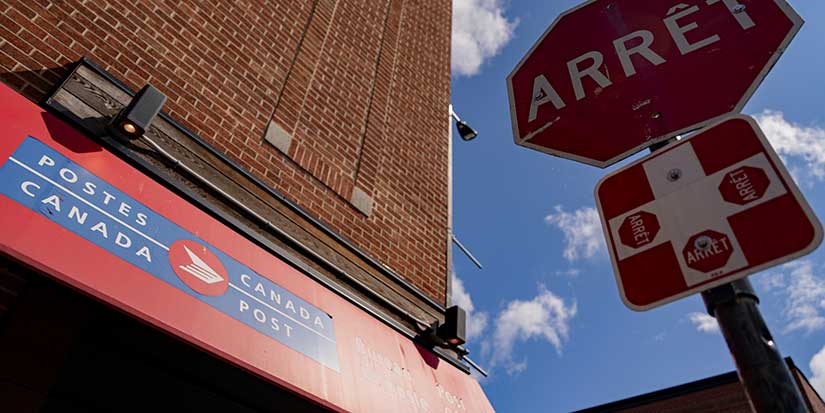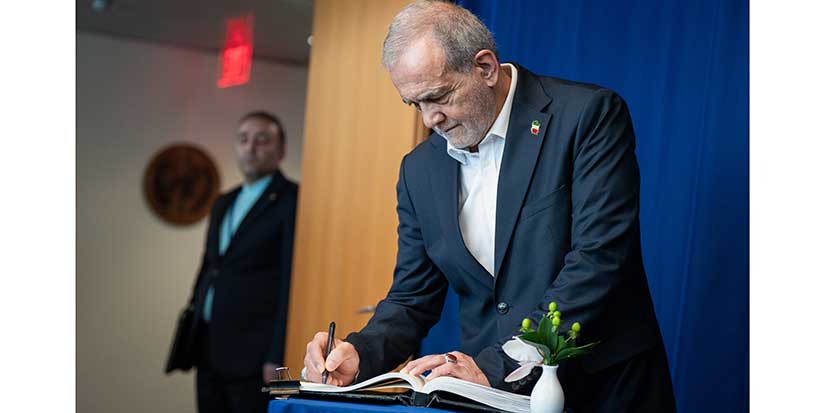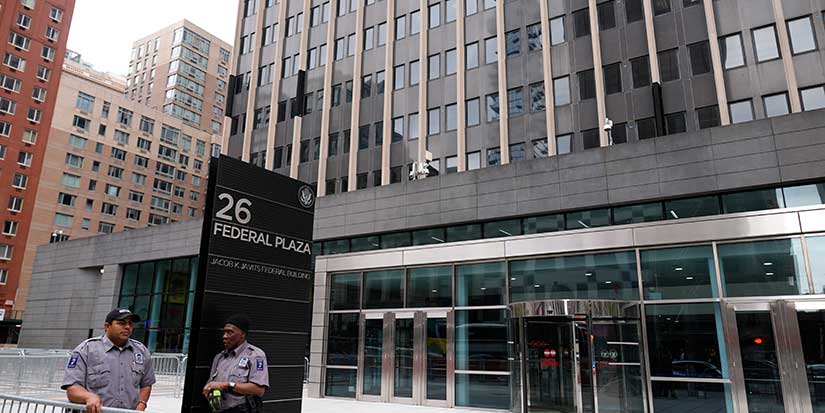National News
Business groups warn of 'massive' impact from another Canada Post strike
Published 10:49 PDT, Fri September 26, 2025
Last Updated: 12:19 PDT, Fri September 26, 2025
—
Business groups expect a "massive" hit to small companies' operations after unionized postal workers began a countrywide strike on Thursday evening.
But the Canadian Federation of Independent Business said Ottawa must still push forward with announced changes to Canada Post's business model, such as the eventual end to door-to-door mail delivery for nearly all Canadian households.
CFIB president Dan Kelly said a Canada Post work stoppage around the holiday period last year cost small firms over $1 billion.
He said that another labour action in the lead-up to the critical holiday retail shipping season would be "terrible" for businesses reliant on the postal service.
"We are kind of at the cusp of the start to the retail sales season, where Canada Post is still a giant player in distributing goods," said Kelly in a phone interview.
He added that sending a cheque by mail also remains the top way that businesses pay each other because it is a low-cost option. That means many firms are now worried about payments being frozen while deliveries are halted.
"They're going to have to hustle to get paid. A lot of businesses will now have to go back and call their customers and urge them to pay in a different fashion if they've sent a cheque in the mail or were about to," said Kelly.
"There are alternatives, of course, through electronic funds transfer or couriering a cheque, but they're more expensive and typically the business is just not set up in that fashion."
For James Young, owner of Home & Lifestyle Shopping Guide, the work stoppage leaves him "technically unemployed for the time being," he said.
The publication serves as a monthly direct mail advertising magazine. Young said the next issue was supposed to go to press on Monday, with 180,000 copies to be distributed through Canada Post in October.
"I've done all the work with my clients to get their advertising put together to build the magazine, but now we're in a holding pattern," he said.
"Effectively, my income is down to $0 because of the strike right now."
Young said many clients timed their advertisements in his publication to line up with promotions that are set to expire in the coming weeks.
If the magazine isn't published and distributed on time, "their ad is really not going to be effective in any way, shape or form," he said.
"I'm losing clients because they don't trust that the magazine is going to get delivered."
The Canadian Union of Postal Workers, representing 55,000 members of the postal service, said it was caught off guard by the federal government's announcement on Thursday. It called its strike a response to an "attack on our postal service and workers."
Public Works and Procurement Minister Joël Lightbound, who is responsible for the Crown corporation, announced Thursday several government measures including an end to a moratorium on community mailbox conversions.
That authorizes the mail carrier to convert the remaining four million addresses that still receive door-to-door delivery in a move that would save nearly $400 million annually.
The government also said it would end a moratorium on closing rural post offices that has been in place since 1994, covering close to 4,000 locations. It said closing some of those post offices in regions that are no longer rural will reduce duplication in overserved areas.
Meanwhile, non-urgent mail will be cleared to move by ground instead of air, reflecting a decline in delivery volumes. Ottawa said this would save Canada Post more than $20 million per year.
Lightbound said the corporation is losing about $10 million per day, despite the federal government providing a $1-billion injection earlier this year to keep it operational.
The postal workers went on strike just hours after the government revealed the suite of reforms, marking the latest escalation in a labour dispute that has been going on for nearly a year.
A previous strike and lockout lasted more than a month in November and December 2024, ending after then-labour minister Steven MacKinnon declared an impasse in the talks and asked the Canada Industrial Relations Board to order an end to the work stoppage.
CFIB's Kelly said 13 per cent of small firms moved away from Canada Post permanently after last year's work stoppage, citing a survey of the group's members. A recent poll also indicated two-thirds of CFIB members would follow suit if another strike occurred.
"Many businesses are doing the math to say, 'Nuts to this, I'm not going to continue to get hammered by this every year,'" he said.
"Every day that the strike continues, more businesses will make that decision to leave and leave for good."
Last year's work stoppage was also a blow to Canadian charities, which typically see a huge chunk of annual donations during the final two months of the year, said Nicole Danesi, a spokesperson for online giving platform CanadaHelps.
The organization said Canadian charities lost an estimated $266 million in donations during the 2024 strike.
"A lot of charities still rely on direct mail to receive donations. They often are mailing out appeals, for example, and they really rely on some of those key donations that come through the mail," said Danesi in an interview.
"There's concern that this could potentially, again, hit charities in a really negative way and we're really hoping that Canadians who are wanting to support their favourite charities ... are instead turning to online donations."
The Canadian Chamber of Commerce called on both sides to return to the bargaining table and commit "to good faith negotiation focused on how to best support consumers and businesses."
“Canadians are counting on Canada Post to deliver and, following years of repeated supply chain disruptions, another strike is not welcome news," said Pascal Chan, the chamber's vice-president of strategic policy and supply chains, in a statement.
– Sammy Hudes, The Canadian Press































